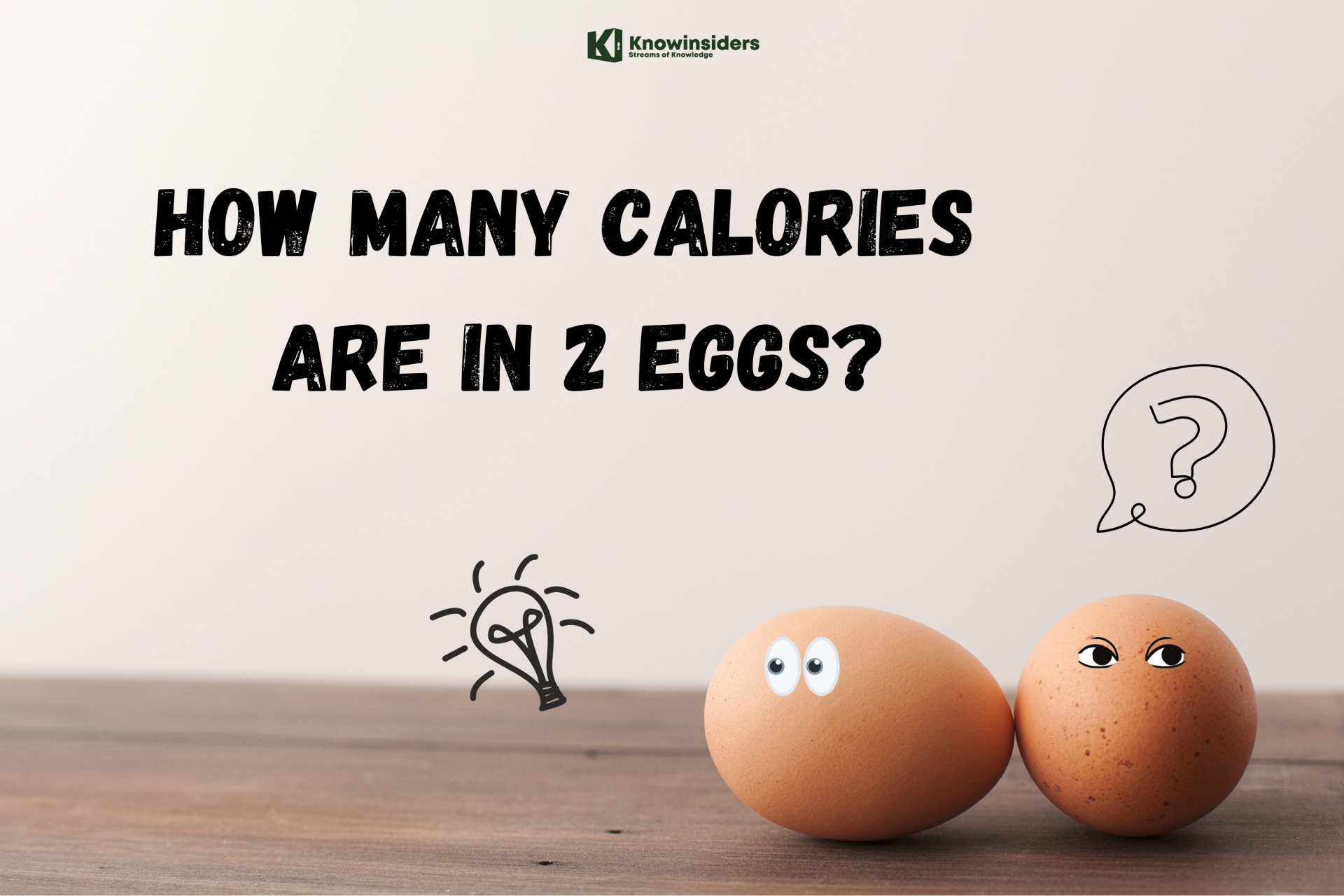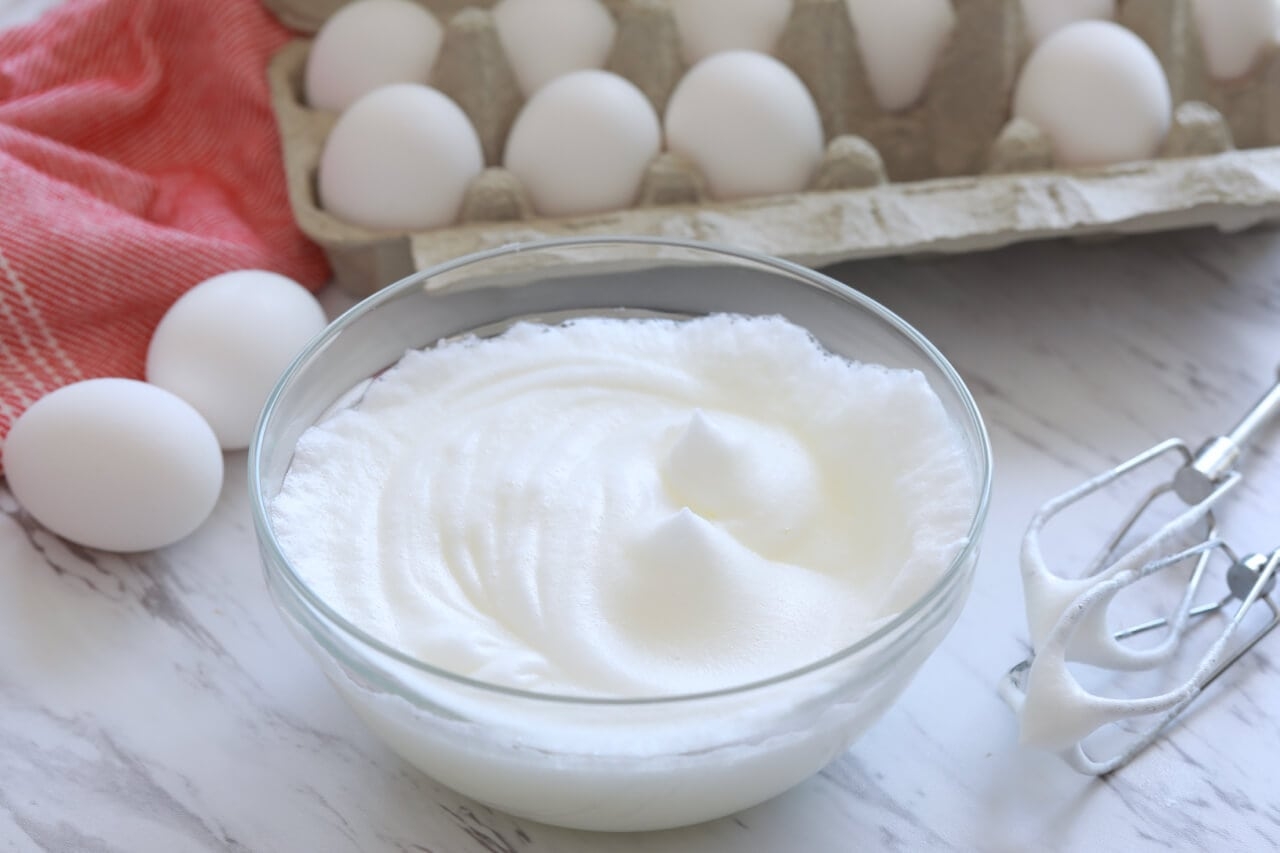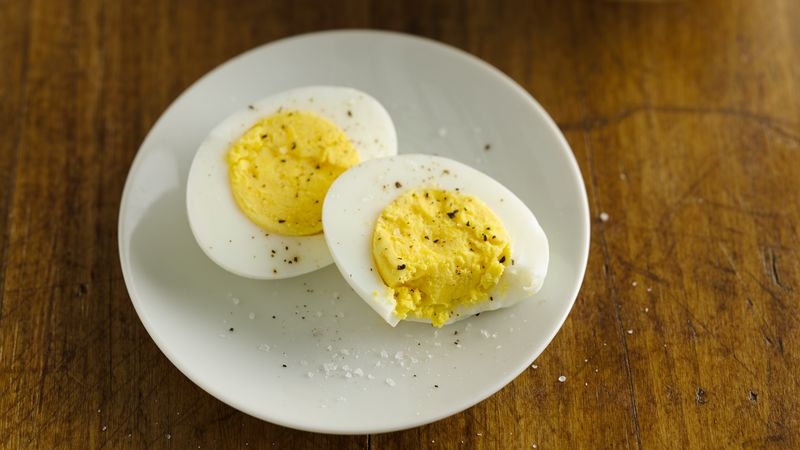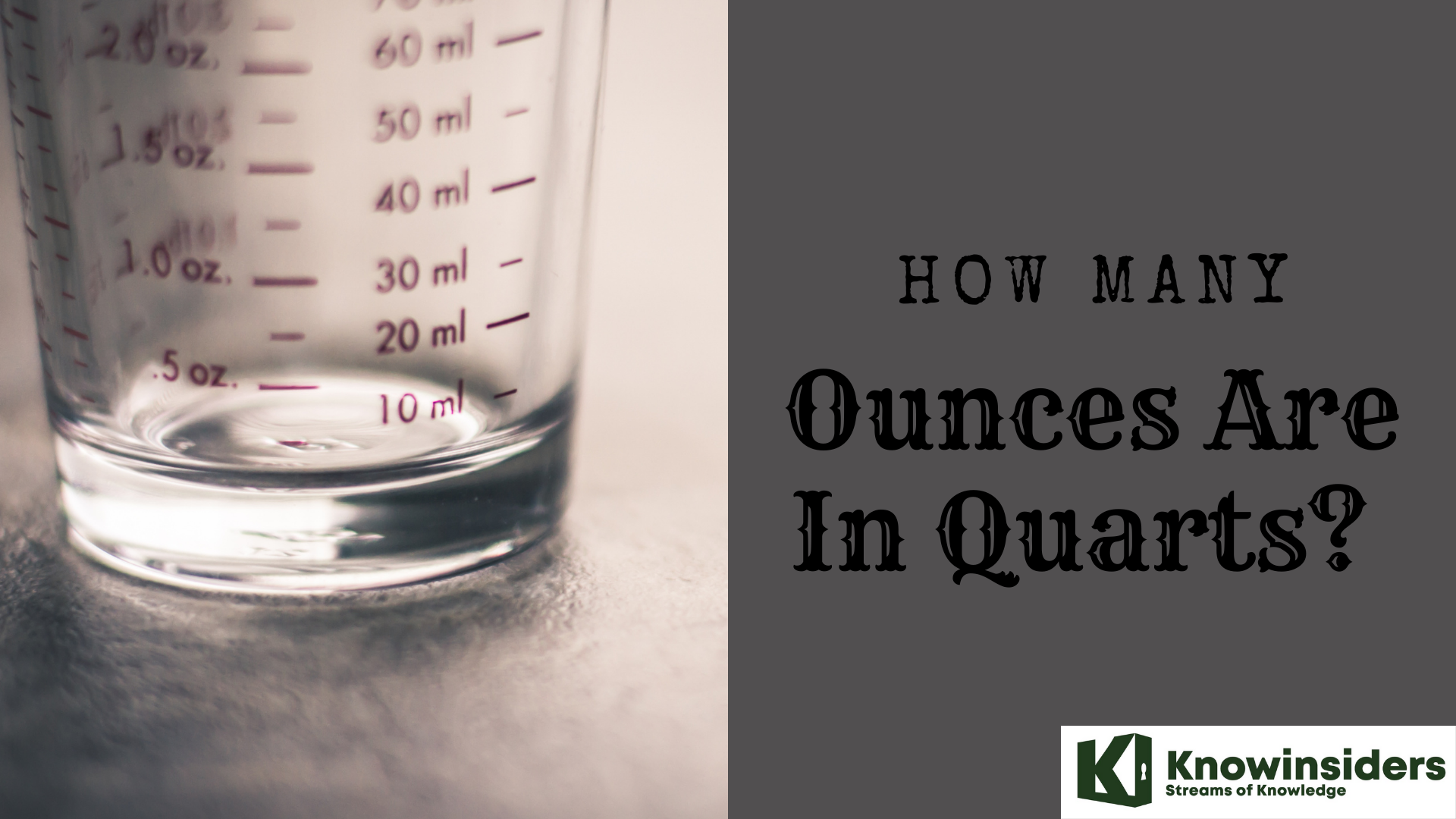How Many Calories Are In 2 Eggs?
 |
| Photo: KnowInsiders |
What would we do without the egg? It's a dietary mainstay, not only for breakfast but to feed finicky kids, a stand-in for a quick lunch or supper, blend raw into holiday nogs, and as an ingredient in all kinds of sweet and savory dishes.
But for a few decades there, eggs had a rather unwholesome reputation. Thanks to its high cholesterol content, the egg was deemed villainous. Years went by while many of us shunned eggs, ate only the whites, or ventured into the world of egg substitutes.
Then, in 2000, the American Heart Association (AHA) revised its dietary guidelines and gave healthy adults the green light to enjoy eggs once again. The AHA's guidelines now allow an egg a day for healthy adults while still advising a total daily cholesterol limit of 300 mg.
The confusion over eggs stems from their cholesterol content. One large egg contains 213 mg of cholesterol, accounting for two-thirds of the recommended daily limit.
When scientists learned that high blood cholesterol was associated with heart disease, foods high in cholesterol logically became suspect. But after 25 years of study, it has become evident that cholesterol in food is not the culprit -- saturated fat has a much bigger effect on blood cholesterol. Full-fat dairy products and fatty meats are examples of foods that are loaded with saturated fat and which trigger the body to produce cholesterol.
How many calories are in an egg?
An average-size egg contains 74 calories or 310 kJ. This is the egg size found in the 700-gram cartons that most people buy.
A smaller egg from a 600-gram carton contains 64 calories or 268 kJ.
A larger than average egg from an 800-gram carton contains 84 calories or 352 kJ.
The nutrient profile of Australian eggs and the contribution to Recommended Dietary Intakes (RDI) is shown in the following table for a 700-gram carton:
| 1 egg (52g) | Average quantity per serving (2 eggs) | Average quantity per 100g | %DI | |
| Kilojoules | 310kJ | 620kJ | 596kJ | 7% |
| Calories | 74 Cal | 148 Cal | 142 Cal | 7% |
| Protein | 6.3g | 12.7g | 12.2g | 25% |
| Fat, total | 5.2g | 10.3g | 9.9g | 15% |
| - saturated | 1.7g | 3.3g | 3.3g | 14% |
| Carbohydrate | 0.7g | 1.4g | 1.4g | <1% |
| - sugars | 0.15g | 0.3g | 0.3 g | <1% |
| Sodium | 70mg | 141mg | 136mg | 6% |
Serving size: 104g (2 eggs)
% Daily Intake. Based on an average adult diet of 8700kJ.
How Many Calories in Two Eggs?An average serving size of two eggs contains only 148 calories or 620 kilojoules – roughly the same as two apples. |
How Many Calories in An Egg White?
 |
| Photo: Bigger Bolder Baking |
Egg white is the thick cloudy clear liquid that surrounds the yolk. Depending on the size of the egg, the white (called albumen) accounts for about two-thirds of an egg’s liquid weight and contains more than half the total protein.
The white of a 60-gram egg contains about 17 calories.
While the egg white is a great source of protein and contains no fat, many of the egg’s nutrients and almost half of the protein are found in the yolk. Dietitians recommend eating whole eggs for the maximum nutritional benefit and recent studies show eating whole eggs rather than egg whites promotes muscle development after exercise.
How Many Calories in a Boiled Egg?
Whether it's a soft-boiled egg with breakfast or featured in salads, sandwiches and curries, boiled eggs are one of the healthiest and easiest ways to eat eggs.
A 60g boiled egg contains only 74 calories or 310 kJ.
How Many Calories in a Poached Egg?
Who doesn't love a perfectly poached egg? And because they’re cooked in hot water, poached eggs are likely to contain fewer calories than eggs that have been scrambled or fried.
A typical 60g poached egg contains 74 calories or 310 kJ.
How Many Calories in a Fried Egg?
The number of calories in fried eggs depends on the amount and type of oil, butter or margarine (if any) that is used in the frypan. Generally, using oil, butter or margarine will result in a fried egg having more calories than a boiled or poached egg.
However, there are so many variables it is impossible to provide a definitive number of calories for a fried egg. The oil type e.g. olive, canola, sunflower, how refined or processed it is, how much is used, and how high the temperature of the oil goes in the cooking process can all influence the health benefits of fried eggs.
How Many Calories in Scrambled Eggs?
Scrambled eggs are one of the easiest and tastiest dishes to make but they are likely to contain more calories than boiled or poached eggs as recipes typically call on milk and butter.
As with fried eggs, it is hard to say how many extra calories it adds because it depends on the amount and type of milk that is added to the beaten eggs and how much butter or oil (if any) is added to the pan.
People counting calories as part of a strict diet may be better to eat boiled or poached eggs that contain fewer calories. However, there is no reason to avoid scrambled eggs either as the calories can be controlled by the type and amount of ingredients you add. To keep the calorie content low, use a small amount of reduced-fat milk when mixing the eggs and cook using just a small amount of oil or butter in the pan.
How many eggs per day?There is no recommended limit on how many eggs people should eat. Eggs can be enjoyed as part of a healthy, balanced diet, but it's best to cook them without adding salt or fat. For example: -boiled or poached, without added salt -scrambled without butter and using low-fat milk instead of cream Frying eggs can increase their fat content by around 50%. However, people who have high cholesterol or are at risk for heart disease need to monitor their egg intake. They need to monitor how much-saturated fat and dietary cholesterol they are getting, explains Tara Collingwood, MS, RDN, a performance dietitian in Orlando, Florida, and author of Pregnancy Cooking & Nutrition for Dummies. "Eggs do have saturated fat and dietary cholesterol, but dietary cholesterol has not been shown to raise blood cholesterol as much, if at all, as we thought in the past," she says. "It is really just the saturated fat in the egg yolk that we worry about the most. As long as saturated fat intake is monitored from other places like butter, high-fat dairy and fatty meats, then egg yolks can definitely be a part of a heart-healthy diet." |
Benefits of eating eggs
 |
| Photo: Pete and Gerry's Organic Eggs |
Eggs can provide a number of health benefits.
Strong muscles: The protein in eggs helps maintain and repair body tissues, including muscle.
Brain health: Eggs contain vitamins and minerals that are necessary for the brain and the nervous system to function effectively.
Energy production: Eggs contain all the nutrients that the body needs to produce energy.
A healthy immune system: Vitamin A, vitamin B-12, and selenium in eggs are key to keeping the immune system healthy.
Lower risk of heart disease: The choline in eggs plays an important part in breaking down the amino acid homocysteine, which may contribute to heart disease.
A healthy pregnancy: Eggs contain folic acid, which may help prevent congenital disabilities, such as spina bifida.
Eye health: The lutein and zeaxanthin in eggs help prevent macular degeneration, the leading cause of age-related blindness. Other vitamins in eggs also promote good vision.
Weight loss and maintenance: The protein in eggs can help people feel full for longer. This can reduce the urge to snack and lower a person’s overall calorie intake.
Skin health: Some vitamins and minerals in eggs help promote healthy skin and prevent the breakdown of body tissues. A strong immune system also helps a person look and feel well.
To experience the health benefits of eggs, a person should eat them as part of a balanced diet.
Boiled-eggs nutrition facts
 |
| Photo: Betty Crocker |
Eggs are among the most nutritious foods on the planet.
A whole egg contains all the nutrients required to turn a single cell into a baby chicken.
A single large boiled egg contains:
-
Vitamin A: 6% of the RDA
-
Folate: 5% of the RDA
-
Vitamin B5: 7% of the RDA
-
Vitamin B12: 9% of the RDA
-
Vitamin B2: 15% of the RDA
-
Phosphorus: 9% of the RDA
-
Selenium: 22% of the RDA
-
Eggs also contain decent amounts of vitamin D, vitamin E, vitamin K, vitamin B6, calcium and zinc
This comes with 77 calories, 6 grams of protein and 5 grams of healthy fats.
Eggs also contain various trace nutrients that are important for health.
In fact, eggs are pretty much the perfect food. They contain a little bit of almost every nutrient you need.
If you can get your hands on pastured or omega-3 enriched eggs, these are even better. They contain higher amounts of omega-3 fat and are much higher in vitamin A and E.
Healthy ways of eating eggs
Eggs are a versatile food, and many people enjoy them fried, boiled, scrambled, or baked. They are easy to incorporate into a diet.
Boiled or poached eggs, for example, are simple to make and contain no added fat. Sprinkle pepper, chili powder, or sumac on the eggs for added flavor.
Plain-boiled eggs can be a good snack or a meal for a person with digestive problems or someone who is recovering from an illness.
Hard-boiled eggs are a convenient picnic food, and they go well in a salad.
Huevos ranchero is a Latin favorite that involves an egg on a base of tomato, with herbs and other flavorings.
For a healthful omelet or scrambled eggs, use vegetable oil and add onion, herbs, garlic, peas, and sweetcorn for extra nutrition.
Avoiding the spread of bacteria
There can be bacteria on the shell as well as inside the egg, which can spread very easily to other foods, as well as to hands, utensils and worktops.
These tips can help avoid the spread of bacteria:
-
keep eggs away from other foods – both when they are in the shell and after you have cracked them
-
be careful not to splash egg onto other foods, worktops or dishes
-
always wash your hands thoroughly with warm water and soap, and then dry them after touching or working with eggs
-
clean surfaces, dishes and utensils thoroughly using warm soapy water after handling eggs
-
do not use eggs with damaged shells, because dirt or bacteria might have got inside them
 Top 9 Most Popular Breakfast Foods in USA Top 9 Most Popular Breakfast Foods in USA Which breakfast foods really are the best of the best in the US? We have a list of the ... |
 National Egg Day: History, Significance, Celebrations and Interesting Facts National Egg Day: History, Significance, Celebrations and Interesting Facts Happy National Egg Day! Eggs are a very rich source of protein and everybody loves eggs. Check out our article below to find out how ... |
 How to Boil Eggs in Different Styles? How to Boil Eggs in Different Styles? Learn the best method for how to boil eggs to produce the perfect hard boiled egg every single time without any fuss. |


























